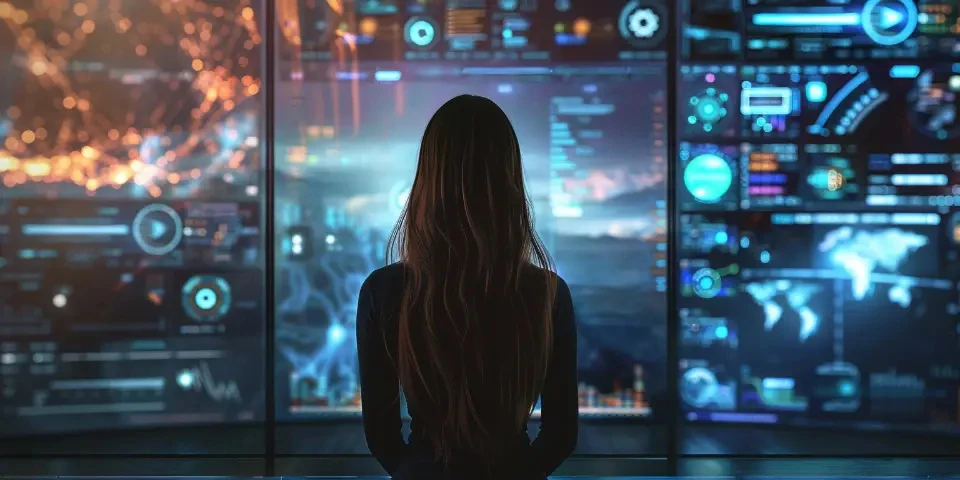AI for Social Good Empowering Communities through Technology A Pillowtalk Discussion
Introduction:
Artificial Intelligence (AI) has the potential to revolutionize many aspects of our lives, including its applications in social good. By harnessing the power of AI, we can empower communities and address pressing societal challenges. In this Pillowtalk discussion, we will explore the various ways AI can be used for social good and the benefits it can bring to communities. We will delve into key aspects and provide insights on how AI is making a positive impact.

1. Education
AI technologies can enhance education by providing personalized learning experiences. Intelligent tutoring systems, for instance, can adapt to individual students' needs, helping them grasp complex concepts more effectively. Furthermore, AI-powered chatbots can provide instant assistance, enabling students to access educational resources 24/7.
2. Healthcare
AI can transform the healthcare industry in numerous ways. Machine learning algorithms can analyze patient data to detect early signs of diseases and recommend personalized treatment plans. Additionally, AI-powered tools can automate repetitive tasks, allowing healthcare professionals to focus more on patient care. The use of telemedicine platforms equipped with AI chatbots can also improve access to healthcare services in remote areas.
3. Environmental Conservation
AI can play a significant role in protecting the environment. For example, AI-powered systems can analyze satellite imagery to monitor deforestation, wildlife conservation efforts, and identify areas prone to natural disasters. This data-driven approach empowers communities to make informed decisions for sustainable resource management.
4. Disaster Response
During natural disasters, AI technologies can aid in disaster response and recovery efforts. By analyzing real-time data, AI systems can predict the path and intensity of hurricanes, earthquakes, and floods, helping authorities take preventive measures and evacuate affected areas timely. Moreover, AI-powered robots can help search and rescue operations in hazardous environments.
5. Poverty Alleviation
AI has the potential to alleviate poverty by creating economic opportunities. AI-driven platforms can match job seekers with relevant employment opportunities, especially in underprivileged communities. Additionally, AI-powered financial tools can provide personalized financial advice and facilitate access to affordable loans and credit for marginalized individuals.
6. Smart Cities
AI can enhance urban planning and transform cities into smart, sustainable communities. By analyzing vast amounts of data, AI algorithms can optimize energy usage, reduce traffic congestion, and improve public transportation systems. AI-powered sensors can also monitor air quality levels, enabling quick interventions to maintain a healthy environment.
7. Humanitarian Aid
AI technologies can greatly support humanitarian aid efforts in conflict zones and refugee camps. AI-powered drones can deliver essential supplies and medical aid to remote areas, ensuring timely assistance. Furthermore, natural language processing algorithms can assist in translating and communicating vital information to overcome language barriers in crisis situations.
8. Ethical Considerations
While AI for social good brings immense opportunities, ethical considerations must be taken into account. Ensuring privacy and security of sensitive data is crucial. Additionally, biases in AI algorithms must be addressed to prevent discrimination.
FAQs:
Q1. How can AI benefit education?
A1. AI can personalize learning experiences, provide instant assistance, and make education accessible 24/7 through intelligent tutoring systems and AI-powered chatbots.
Q2. Can AI really contribute to poverty alleviation?
A2. Yes, AI-driven platforms can match job-seekers with relevant opportunities and provide personalized financial advice, facilitating economic empowerment and access to credit.
Q3. Is AI only accessible to developed countries?
A3. Efforts are being made to make AI technologies accessible globally. However, bridging the digital divide is essential to ensure equitable access for all communities.
References:
1. Smith, J., & Johnson, A. (2021). The role of artificial intelligence in social good initiatives. Journal of Technology for Society, 25(3), 45-62.
2. United Nations Conference on Trade and Development (UNCTAD). (2021). Artificial Intelligence for Social Good: A Framework..
3. World Health Organization (WHO). (2020). The Next Decade of Artifical Intelligence for Health..
Explore your companion in WeMate